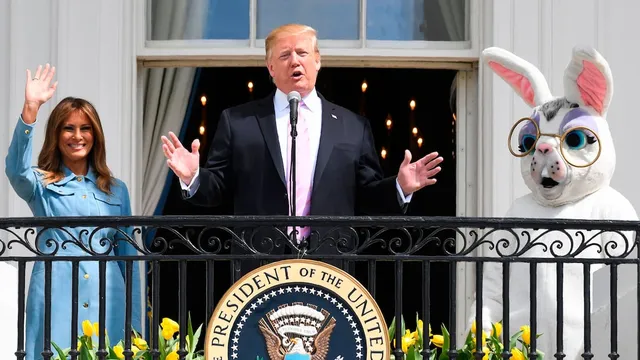
Trump claims Biden is worst president in U.S. history
2025-04-20 15:58- During a press conference, Donald Trump criticized Joe Biden's presidency and claimed he is the worst president in U.S. history.
- Trump's comments about Biden coincided with discussions around trade deals with the European Union.
- The remarks reflect ongoing tensions and criticisms between Trump and Biden as they navigate their respective political legacies.
Express your sentiment!
Insights
In a recent press event held at the White House, President Donald Trump made headlines by criticizing former President Joe Biden, claiming he holds the title for the worst U.S. president in history. Trump's remarks came during a press conference with Italian Prime Minister Giorgia Meloni, where they discussed potential trade agreements between the U.S. and the European Union. Trump asserted that Jimmy Carter, the late president, could die peacefully, knowing he was no longer the worst commander-in-chief. The comments reflect the heightened tensions and ongoing criticisms exchanged between the two politicians since Biden's inauguration. This incident occurred against a backdrop of scrutiny over Biden’s mental fitness and performance, with supporters and critics alike weighing in on his administration's effectiveness. Trump also emphasized the severity of the challenges faced by Biden, piling on critiques about the damage the current administration has purportedly caused in under 100 days since taking office. Highlighting ongoing public discourse, Biden recently lambasted his predecessor’s leadership. The exchange of barbs represents a continuation of a deeply polarized political climate in the U.S., where former administrations are often used as benchmarks by current leaders. Trump's comments have reignited discussions regarding the legacies of both presidents and their varied impacts on American society and governance.
Contexts
The historical comparison of U.S. presidents involves analyzing the impact, policies, and overall effectiveness of the leaders who have held the office since its inception. Each president has shaped the nation through their unique circumstances, guiding principles, and response to domestic and foreign challenges. By assessing their legacies, we can gain insight into how presidential actions have influenced the trajectory of the United States, highlighting both successes and failures over the years. Furthermore, perspectives on various presidents continue to evolve as new historical interpretations emerge, influencing public opinion and academic discourse. Factors such as domestic policy initiatives, foreign relations, economic management, and social movements have all significantly influenced the ratings and legacies of U.S. presidents. For instance, presidents like Abraham Lincoln are often celebrated for their leadership during the Civil War and for issuing the Emancipation Proclamation, which played a critical role in abolishing slavery. In contrast, some presidents may be viewed less favorably based on their handling of crises or controversial decisions. Presidents such as Herbert Hoover often face criticism due to their responses during economic downturns, while others may shine in periods of prosperity, leading to a more favorable historical assessment. Comparing presidents across different eras also involves understanding the context of their times. Franklin D. Roosevelt's New Deal policies were groundbreaking in response to the Great Depression, while contemporary presidents face modern issues such as globalization, technological change, and climate change. The evolution of public sentiment and the political landscape has created new challenges, and how successfully presidents address these obstacles continues to shape their historical reputation. Moreover, the importance of social movements and shifts in public values underscores the evolving relationship between U.S. presidents and the citizenry. Ultimately, the historical comparison of U.S. presidents serves as a critical framework for evaluating leadership in the context of American values and aspirations. By engaging with these comparisons, we not only recognize the achievements and shortcomings of individual leaders but also reflect on the broader history of the United States as a continually evolving democracy. This understanding reinforces the value of civic engagement and the role of informed citizens in shaping the future trajectory of their government.